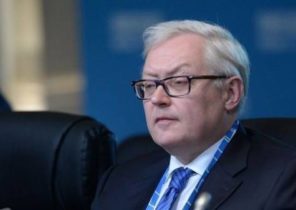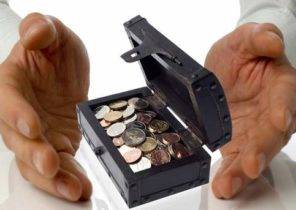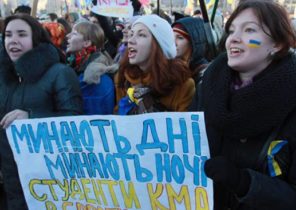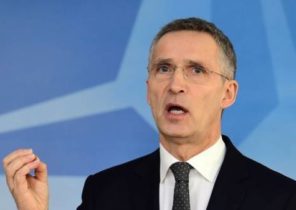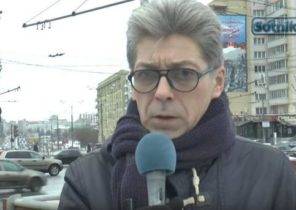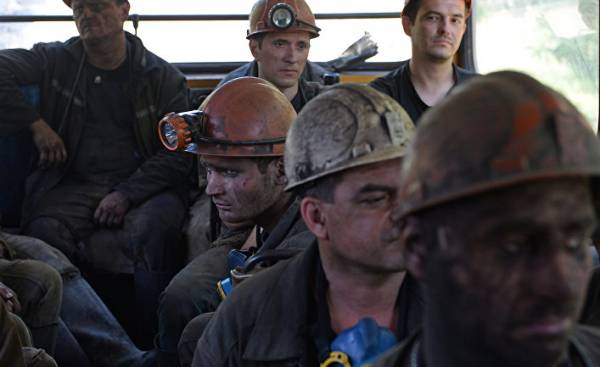
On Wednesday, the conflict between Ukraine and Russia has entered a new phase. Pro-Russian separatist “people’s Republic” in Eastern Ukraine announced that they are taking over the management of the enterprises of the Ukrainian oligarchs, located on their territory. Beyond Ukraine, few people know that in the three years since the conflict began, these factories and mines were paying taxes to the Ukrainian Treasury, and their production was counted in Ukrainian GDP. If the alienation of enterprises will take place, Ukraine will not see the projected economic growth.
In contrast to the military actions and their geopolitical consequences, the economic side of the conflict in the East of Ukraine never really covered. All came from the fact that Ukraine just lost enterprises located in the separatist-controlled territories of Donetsk and Lugansk regions. In October 2016, the IMF published a report on the implementation of the programme of assistance to Ukraine 17.5 billion dollars, and there was a scheme on which Eastern regions were shown as a separate piece taken from the Ukrainian economic pie.
The self-proclaimed people’s republics in the Donetsk and Lugansk regions runs a fickle group, consisting of local bandits, warlords, the Russian military and intelligence officers. All of them when carrying out any major actions are required to obtain permission from the Kremlin. As the self-proclaimed people’s Republic not recognized, they don’t have banks providing a full range of services, there is no normal taxation system, there is no rule of law in the ordinary sense of the word. The loss of Ukraine’s industrial enterprises in the region have contributed to the decline in GDP in 2015 by 9.9%. But about 20 large factories and mines in rebel-held areas, employing about 75 thousand workers, continued to work on the very shaky scheme. Their products were considered Ukrainian; part of it is exported through Ukraine and gave the country a badly needed currency.
It is difficult to calculate what contribution these companies make in Ukrainian GDP because the place of their registration does not correspond to their location. The IMF, which was signed with the Ukrainian authorities a new Memorandum, confirming the transfer of the new loan of one billion dollars, has no such data. But this is a very important asset. Deputy of the Ukrainian Parliament Natalia Veselova recently requested information from the government about the amount of tax paid to Ukraine eight such enterprises and mines. She said that in 2016 this figure amounted to UAH 1.3 billion ($47 billion). It turns out that everyone was at Ukraine enterprises of the Eastern regions in 2016 have gained her more than one percent of tax revenues.
Most of the necessary for the activity of financing the “people’s Republic” get out of Moscow. Hundreds of millions of dollars annually. This creates an additional burden on the Russian budget, which already is experiencing difficulties. Moscow gives the money, however, requires that the “Republic” to squeeze more money from local companies. And recently Ukraine has given the separatists a reason for hitting enterprises with Ukrainian registration.
On 25 January a group of veterans of the Ukrainian army has blocked roads and Railways between Ukraine and the separatist territories, demanding the government to stop trade with the rebels. The bulk of this trade was conducted in the framework of vertically integrated holding companies. For example, controlled by the rebels regions supplying coal for Ukrainian power and metallurgical plants. The government complained the blockade and trying to explain that to buy coal in other countries is expensive, and in any case, it will take time. From February 17 due to the blockade in the Ukrainian energy sector the state of emergency.
The government in Kiev did not dare to lift the blockade by force. Such a move would be extremely unpopular; moreover, it can provoke unrest and even more violent change of power. “It is impossible to imagine anything worse than armed conflict between Ukrainians close to the front lines,” wrote recently in Facebook, a popular mayor of the Western Ukrainian city of Lviv Andrey Sadovy.
Kyiv investment Bank Dragon Capital estimated that the blockade of this year can reduce Ukrainian GDP by 0.6%. This does not include losses from joining the separatists in possession of the industrial enterprises in the East. If the blockade will continue through 2017, and the “nationalization” of these companies would be held more or less completely, in Ukraine in General there is no economic growth, especially in the 2.5% predicted by Bloomberg. But the IMF, like last year, will have to explain that economic forecasts that formed the basis of its assistance to Ukraine was too bright.
A large part of metallurgical enterprises and mines in this region belongs to native of Donetsk and the richest person of Ukraine Rinat Akhmetov, who supports relations with the local authorities, and Kiev. Akhmetov tries not to argue with authorities and regulators, and the government Poroshenko refrains from attacking him. Due to this, this scheme worked for the past three years. His money help to mitigate the humanitarian problems of the rebel regions, and his company fired the Ukrainian house and give back the electricity. A smaller part of industrial enterprises in the East of Ukraine belongs to other Ukrainian oligarchs Sergei Taruta and Vadim Novinsky. They also learned how to find compromises.
Akhmetov and other oligarchs will fight against the “nationalization” of their enterprises. But it would be very difficult, even if Ukraine somehow manages to lift the blockade. Moscow the transfer of control approved. “We are talking about the lives of several million people — said the press Secretary of the President Vladimir Putin Dmitry Peskov. — People need to survive.” Poroshenko announced that will require you to enter additional international sanctions against those who would profit from this “nationalization”. However, the new anti-Russian sanctions in Europe is unpopular.
The Kremlin is seriously thinking about how to put economic pressure on Ukraine. Live in Russia and employs about 2.1 million Ukrainians. This large Diaspora is the largest source coming to Ukraine money transfer. According to the world Bank among the countries of Europe and Central Asia Ukraine is stronger than all depend on such transfers, because they make up six percent of the country’s GDP. In October last year, Ukraine imposed a ban on Russian money transfer systems. The Russian Parliament in response is considering a bill to ban the use of foreign payment systems like Western Union to transfer money from Russia to Ukraine.
The continuing economic ties between Russia and Ukraine, including the agreement on the operation of Ukrainian companies in the rebel-controlled East, it is the only thing that prevents all-out war. Now, when these ties are broken, the likelihood of armed unrest in Ukraine and more direct Russian intervention increases. But even if the worst will not come, the economic situation in Ukraine this year will be worse than predicted by its creditors and hope to people.
The content of the article may not reflect the views of the editorial Board, Bloomberg LP and its owners.

